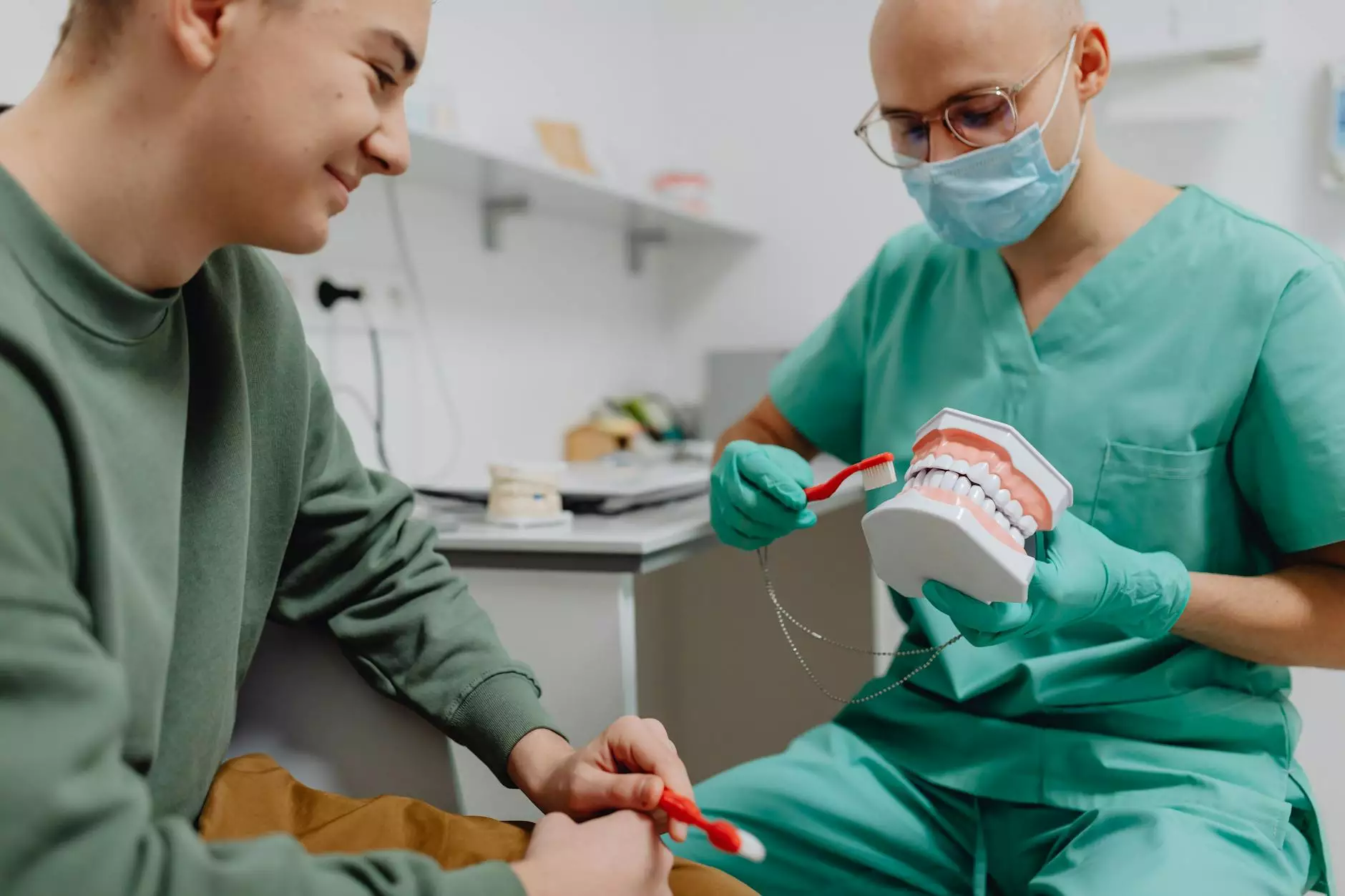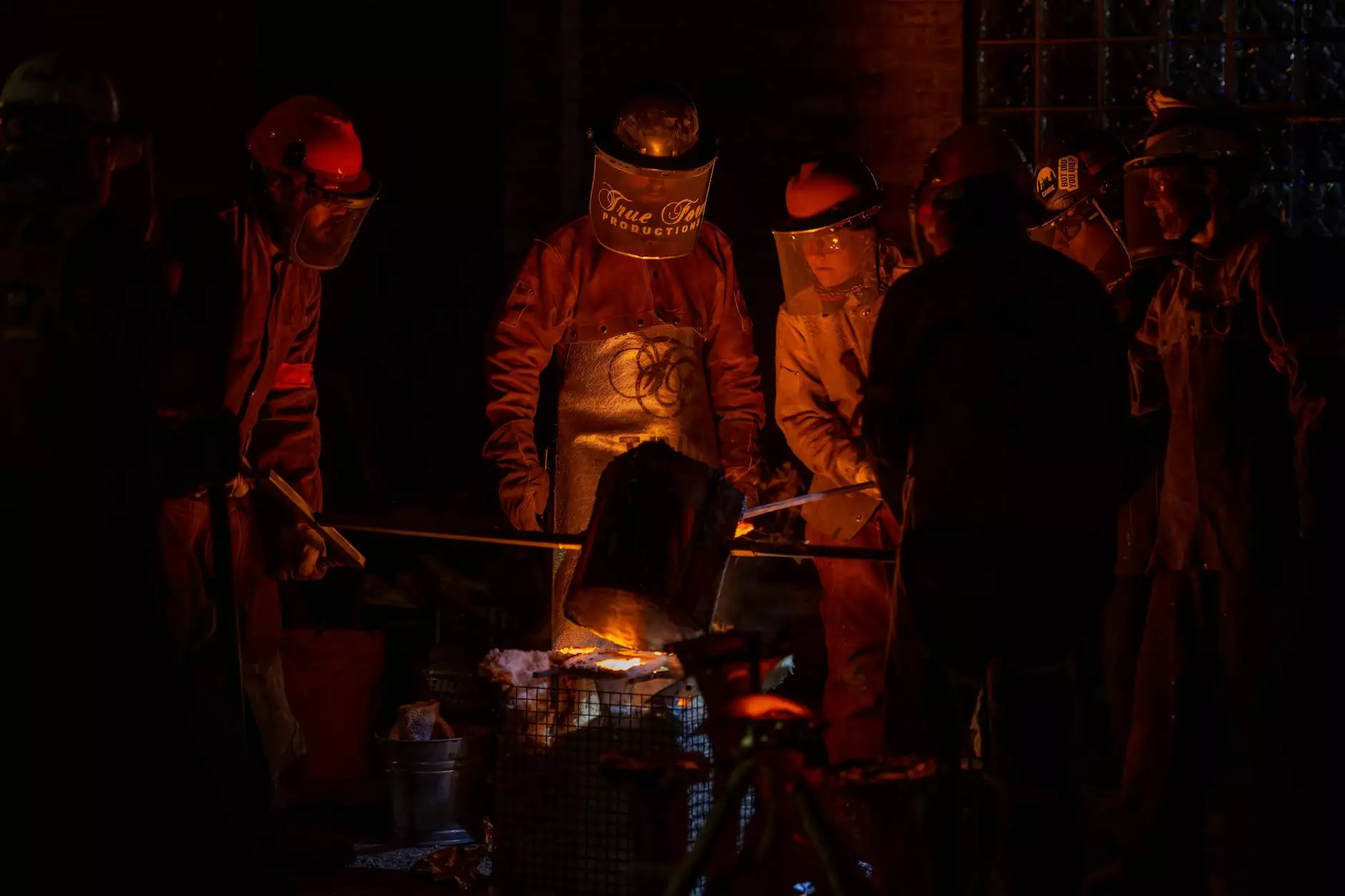Understanding Radiofrequency Ablation for Veins

Radiofrequency ablation (RFA) is a minimally invasive surgical procedure that has gained traction in the field of vascular medicine. This innovative technique is primarily used for treating venous insufficiency, which is a condition where veins struggle to return blood from the legs back to the heart. In this comprehensive article, we will delve into the intricacies of radiofrequency ablation, exploring its benefits, procedures, recovery, and much more.
What is Radiofrequency Ablation?
Radiofrequency ablation is a procedure that utilizes thermal energy to target and obliterate troublesome veins. The main principle behind RFA involves the application of radiofrequency energy that generates heat to shrink and close off varicose veins or other diseased veins. This method effectively reroutes blood to healthier veins, alleviating symptoms and improving overall vascular health.
Why Choose Radiofrequency Ablation for Veins?
The decision to opt for radiofrequency ablation centers on numerous compelling reasons:
- Minimally Invasive: RFA requires no large incisions, leading to reduced recovery time.
- Local Anesthesia: The procedure can be performed under local anesthesia, minimizing discomfort.
- Quick Recovery: Most patients can return to their daily activities shortly after treatment.
- Effective Results: Studies show a high success rate for RFA in treating venous insufficiency.
Who is a Candidate for Radiofrequency Ablation?
Radiofrequency ablation is suitable for individuals experiencing:
- Chronic Venous Insufficiency: Symptoms such as swelling, pain, and cramping in the legs.
- Varicose Veins: Enlarged, twisted veins that can cause discomfort and cosmetic concerns.
- Patients Unresponsive to Conservative Treatments: Those who have not found relief from compression therapy or lifestyle changes.
The Procedure: What to Expect
Understanding the process of radiofrequency ablation can help alleviate any concerns patients may have:
Preparation
Before undergoing RFA, patients will typically have a consultation with their vascular specialist. During this visit:
- The doctor will review medical history and discuss symptoms.
- An ultrasound may be performed to assess the veins and determine the best course of action.
- Patients will be advised on pre-procedure requirements, such as avoiding blood thinners.
During the Procedure
On the day of the procedure:
- Patients will lie down comfortably while the area around the vein is sterilized.
- A local anesthetic is administered to numb the area, ensuring minimal discomfort.
- A thin catheter is then inserted into the affected vein through a small incision.
- Radiofrequency energy is delivered through the catheter, heating the vein walls and causing them to collapse.
- Once treated, the catheter is removed, and the incision is bandaged.
Post-Procedure Care
After the procedure, patients are usually monitored for a short period before being released. Key aspects of post-procedure care include:
- Resting: Patients are advised to rest for a few hours and gradually increase activity.
- Compression Stockings: Wearing compression stockings as recommended to aid recovery.
- Follow-up Appointments: Regular check-ins with the doctor to monitor healing and assess results.
Benefits of Radiofrequency Ablation
Radiofrequency ablation offers a variety of benefits that make it an attractive option for patients:
- Minimal Scarring: The small incisions used in the procedure heal quickly and leave minimal scarring.
- Reduced Pain: Compared to traditional vein surgery, RFA typically results in less postoperative pain.
- Lower Risk of Complications: With its minimally invasive nature, the risk of complications, such as infections, is significantly reduced.
- Enhanced Quality of Life: Many patients report substantial improvements in symptoms and overall quality of life after treatment.
Potential Risks and Considerations
While radiofrequency ablation is generally safe, it’s essential to be aware of potential risks:
- Localized Pain: Some patients may experience discomfort in the treated area.
- Bruising: Bruising around the incision site is common and typically resolves quickly.
- Blood Clots: There is a small risk of developing blood clots following the procedure.
- Recurrence of Symptoms: In some cases, symptoms may recur over time, necessitating further treatment.
Comparing Radiofrequency Ablation to Other Treatments
When considering treatment options for vein issues, it's essential to compare:
Endovenous Laser Treatment (EVLT)
Similar to radiofrequency ablation, Endovenous Laser Treatment utilizes laser energy to close problem veins.
- Energy Source: RFA uses radiofrequency energy, while EVLT employs laser energy.
- Recovery Time: Both procedures are minimally invasive, leading to quick recovery times.
Traditional Vein Surgery
Traditional vein stripping is a more invasive approach involving general anesthesia and larger incisions.
- Invasiveness: RFA is less invasive compared to traditional surgery.
- Recovery Duration: Recovery from traditional surgery is generally longer than that for RFA.
Cost of Radiofrequency Ablation
The cost of radiofrequency ablation can vary based on several factors, including:
- Location: Geographic differences can affect pricing.
- Healthcare Provider: Costs may differ among providers and facilities.
- Insurance Coverage: Many insurance plans cover RFA, particularly when deemed medically necessary.
Conclusion: Is Radiofrequency Ablation Right for You?
If you are suffering from venous insufficiency or varicose veins, radiofrequency ablation may be an effective and beneficial treatment option. By understanding the procedure, benefits, and potential risks, you can make an informed decision in consultation with your vascular specialist.
For those considering this procedure, or if you have further questions about your vascular health, trufflesveinspecialists.com provides detailed information and expert care. Their dedicated team is committed to ensuring optimal outcomes through personalized treatment plans tailored to each patient's unique needs.
Seek out a consultation today and take the first step towards achieving healthier, pain-free veins!
radiofrequency ablation veins








